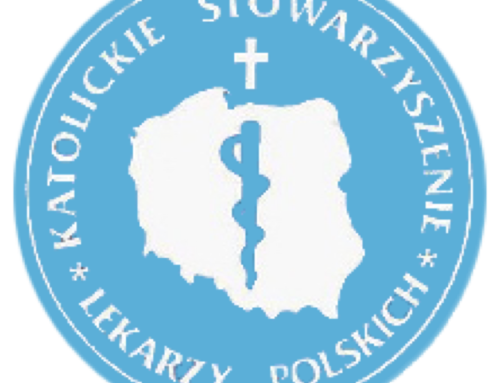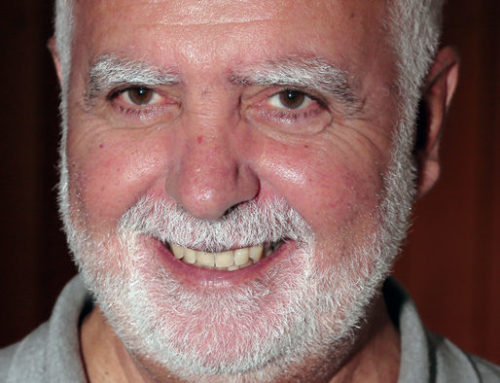21 December 1980
To the health personnel of the Hospital of St. James in Rome
In the afternoon of Sunday , 21st of December, the Holy Father went on a pastoral visit to the Hospital of St. James in the Augusta section of Rome. In the course of the visit the Pope delivered the following address:
Beloved Brothers and Sisters!
After the visit I paid in December of last year to the chief Hospital of the Holy Spirit in Sassia and to the Pious Institute of the same name, I deeply desired to come to this nosological Centre, dedicated and, as it were, consecrated to nursing and caring for the sick. If we consider, in fact, its antiquity and its history – a history of nearly seven centuries – it has claims to due consideration that are not inferior or secondary, and it takes its place worthily because of the qualified activity that is still carried out here, in the very vast and multiform framework of the socio-medical organization and of the hospital structures of the city. Today it is an important part of the “Local Health Unit, Rome One”.
But I have come, as you well understand – not so much to point out the external elements, important though they are, that distinguish St James, as to meet, in keeping with the nature of my mission as Bishop of Rome, the people who are here. I wish, therefore, to greet the political and administrative authorities, beginning with the President of the Regional Council of Latium and the President of the Management Committee of the aforementioned Health Unit, whom I thank for his kind welcoming address.
As a shepherd who wishes to be and must be close to the sheep of his flock, I am thinking also of all those who are working here as medical operators, and those who are suffering here from the pains of illness. I am thinking of you, physicians, assistants and nurses, and above all of you, beloved sick brothers and sisters: I now wish to greet all of you, one by one, in the Lord’s name. I see among you Mons. Fiorenzo Angelini, who has been actively engaged in the hospital apostolate for so many years, and with him are the zealous chaplains, the nursing Sisters, the Pastoral Council of the Hospital and the well-deserving Volunteers for assistance to the sick; therefore I willingly extend my cordial greeting to them too.
Location of Hospital a Strategic Choice
Right from the beginning, St. James’s Hospital had its centre here and the choice was certainly not a casual one. As in the case of the Holy Spirit Institute, the well-deserving founders and promoters were concerned that it should rise in an area close to via Cassia and via Flaminia, so often travelled by pilgrims on their journey of faith and piety towards the City consecrated by the martyrdom of Saints Peter and Paul. It could be said that it was a “strategic choice”, intended to offer to those who arrived in Rome from the north after such fatigues and also, in some cases, after the dangers of a long journey, welcome and assistance, and when there were sick people, also aid and hospitalisation.
I will not dwell upon the extraordinary and constant solicitude that the Pontiffs, my predecessors, had for this hospital throughout the centuries, entrusting it to special confraternities for its management, awarding it the title of Arch-hospital and intending it for those who were affected with diseases once considered “incurable”, or better, “not curable” (cf Bull. Salvatoris Nostri, of Leo III, dated 19 July 1515; Bullarium Romanum, t. III, p. III, 418-420; cf. ibid. 421-423).
I consider another fact far more important, since it indicates an outstanding spiritual level. In the age of Italian Renaissance St. James was an active school of charity for some great figures of saints. ‘St Cajetan of Thiene made it his habitual dwelling for many years in order to be near his sick brothers and sisters. St Philip Neri frequented it from his youth as a place for exercising piety, and he was among the first to foresee the opportunity of ensuring convalescents a period of rest in a suitable place before resuming work. St Felix at Cantalice, so popular in 16th century Rome, who often came to help his Capuchin confrères who were active here in his time. But the name of St Camillus de Lellis is more closely connected than others with St. James. He spent here, at various times, almost a decade of his life, which was not a long one, as a patient, attendant: nurse and bursar. After conversion from the dissipation from his youth , in the ancient church of St. James attached to the hospital, he celebrated his first Mass, and it can be said that it was precisely from the deeply-felt and concrete experience, matured here, that he drew such wise lines of pastoral action, which he subsequently fixed in the Rule of his Congregation of “Servants of the Sick”. Even today his spirit hovers within these venerable walls, and – we can add – he still is active here thanks to the presence and dedication of “his” Religious.
But today’s meeting would run the risk of remaining abstract and impersonal, if there were not on my part a distinct and direct word for the persons who, with their presence and with their work, enliven the reality of the hospital as real promoters. I address in the first place you, esteemed doctors and professors who, with your collaborators, have the primary responsibility of treating the sick, in need as they are of human understanding and brotherly love, even before effective and appropriate therapies. I know very well the difficulties of various kinds which are characteristic of your profession: in addition to sacrifices that can easily be recognized, which are called the duty of presence, promptness of intervention, “standing by “ in emergency cases, there is the necessity to keep up-to-date in the medico-scientific field, which in our days, due to the incessant rhythm of research and experimentation, is in a state of permanent development.
Service to the sick
All this can be summed up in one word, which only apparently may seem usual and common: it is the word “service” to be understood as a struggle against disease and a commitment to the sick. Yours is actually a service of life, or even better of the living man, that is, that man who – as a great Father of the ancient Church says – precisely because he is living, is, in the concrete, the glory of God: Gloria Dei homo vivens (St Irenaeus, Adversus haereses, IV, 20, 7). From this depth of perspective there emerges all the grandeur and nobility in the medical profession, which is at the same time an art and a science, because alongside a serious doctrinal preparation, it requires keen psychological intuition. If life is a gift from God – a great gift from God – it must constitute for you the terminal and inescapable reference point to which you must continually look in all the individual services and phases in which the exercise of such a delicate art is carried out. Your service is addressed precisely to living man, from the first moment in which this ever-new and amazing mystery of life buds , thus deriving immediately a character of sacredness. Here is the first principle, which concerns professional ethics and does not admit of exceptions and violations: it must be, therefore – and I hope it will always be – a point of honour.
Yes, honour! Honora medicum, the ancients said, and I wish to repeat it now, as just recognition of your merits before human society and also in confirmation of the esteem with which the Church has always followed and encouraged your work.
And now I wish to address you, dear Camillian Religious and Reverend Sisters of Mercy, who dedicate your assiduous pastoral cares to the sick. When I recalled just now the four figures of Saints whose memory is here in blessing and in perennial example , I was thinking especially of you, because it is from them that your beneficial daily work must draw inspiration. Like the doctors, you too are assigned to a service, obviously a different one, which concerns specifically the religious and pastoral spheres. What are the qualities of such a service? How can we call them? Discretion, gentleness, thoughtfulness, sensitivity, capacity of starting, resuming or developing – according to the different psychological conditions or circumstances of the person – a dialogue of faith? Yes, certainly, but it is better to use the more exact word, which is offered by Christian vocabulary. The Servants of the Sick and the Sisters of Mercy have charity as their uniform and endeavour to act as Jesus, the divine Master, as that “Son of man (who) came not to be served but to serve, and to give his life as a ransom for many” (Mt 20:28; Mk 10:45).
Act in such a way, brothers and Sisters, that, in the luminous wake of the Saints who imitated Christ the Lord here, the most genuine and solicitous charity may be the sovereign moderator of all that you do for the benefit of the sick.
Pope asks for prayers of the sick
Finally, I address my word to you, sick brothers and sisters, you who have been able to come here, and also you who, because of your conditions of health, have remained in your sections, rooms and wards. This word descends from that same flame of evangelical charity which I recently recommended as a guiding virtue to your Chaplains and Sisters.
When on 17th October 1978, immediately after my unexpected elevation to the pontificate, I went to the Polyclinic “Agostino Gemelli”, I did not obey just an impulse of the heart to visit some friend there, at Monte Mario. I wished to give then, and I can confirm it two years later – a precise indication about the way in which I conceived and conceive the awesome ministry of Peter’s successor. On that occasion I told the sick that I relied on them a great deal: through their prayers and, above all, through the offering of their suffering, a special power could be drawn for me, a power that was and is necessary for me to carry out in a less unworthy way my heavy duties within the Church of Christ. This same idea of an ecclesiastical communion, encouraged and made more valuable by the mysterious, yet very real, contribution of the sacrifices of the suffering, I now express again before you. I repeat, therefore, that I rely a great deal on you, and thank you for this help of yours, while on my part I commend each of you to the Lord who, as he is the master of life, so he is the father of mercies and consolations (cf. Sir 23.1; Wis. 11,26; 2Cor.1,3).
Gifts of peace, joy, brotherhood
Drawing to a conclusion, I cannot forget that my coming coincides with the eve of the Christmas festivities and is, therefore, tuned to a typical and inspiring atmosphere of intimacy and human warmth. Christmas does not only bring back to us a past memory, but actualizes in history the coming, among us men, of Jesus as our Saviour. Here at St. James’s I have met you, sick people who, brothers and sisters of Christ, are also my brothers and sisters, and precisely because you are in this place, you resemble him even more. Particularly united and close to you, I anticipate with you, this very evening, the celebration of the birth of the Lord. May there always be in you and in all brothers and sisters, beginning with your relatives and with those who lovingly assist you, the heavenly gifts of peace and joy, brotherhood and love. This is my wish, which I willingly confirm with the Apostolic Blessing.
John Paul II







